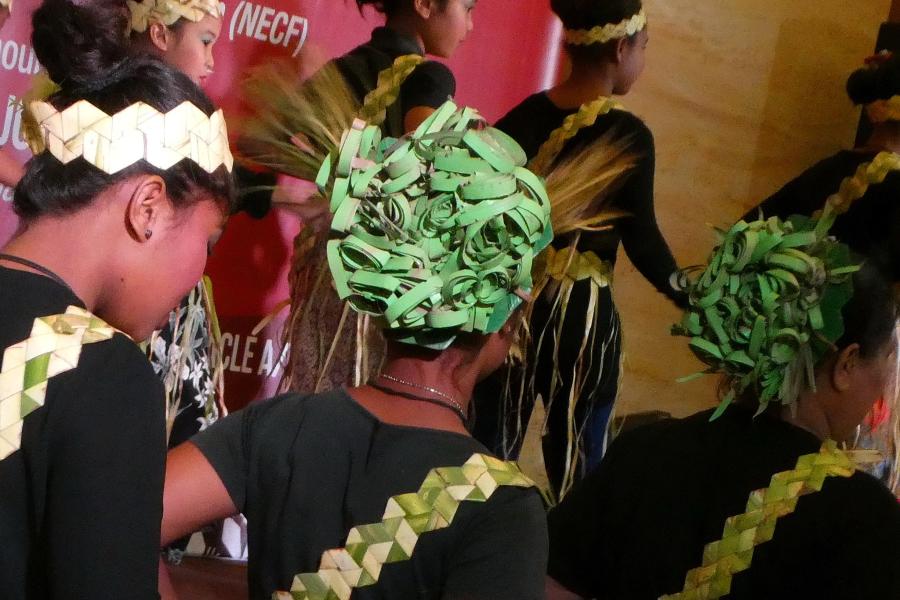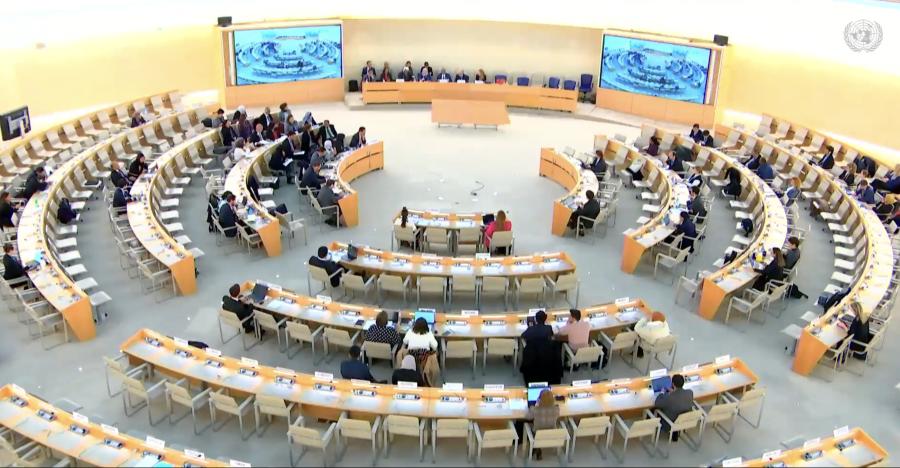We are very happy to learn that the Penan communities of Sarawak's Upper Baram region have won the SUARAM Human Rights Award 2008. The Penan were chosne by the Malaysian human rights organisation Suara Rakyat Malaysia (SUARAM - www.suaram.net) among six nominees, together with the now-banned Hindu Rights Action Force (HINDRAF). On behalf of the Upper Baram communities, Headman Tirong Lawing of Long Kerong and Nick Kelesau participated in the award presentation ceremony, which was held in Kuala Lumpur on the occasion of the International Human Rights day on 10 December 2008.
Nick Kelesau is the son of the Penan leader Kelesau Naan who disappeared in October 2007 under mysterious circumstances. Kelesau's remains were later found in the forest and buried near his home village. "This award is testament to all that my father did to help our community retain our rights," said Nick, according to the New Straits Times.
The Bruno Manser Fund congratulates the Penan communities for this important award and wishes them courage to continue their peaceful struggle for the recognition of their rights.
Please find attached the SUARAM press release, the judges' comment and information on all the nominees.
With kind regards,
Your BMF team
-----------------------------------------------------------------------------------------------------
SUARAM press release
SUARAM Human Rights Award 2008 given jointly to HINDRAF and the Penan community
At the same event, SUARAM also gave out its 2008 Human Rights Award. The winners this year were determined by a panel of judges comprised of notable human rights activists, namely former Internal Security Act (ISA) detainee Irene Xavier, Colin Nicholas of Centre for Orang Asli Concerns (COAC), Masjaliza Hamzah of Sisters in Islam (SIS), and Yap Swee Seng, the Executive Director of Suaram.
6 nominations were received for the award:
1. Komuniti Kampung Chang Sungai Gepai, Bidor,
2. Hindu Rights Action Force (HINDRAF)
3. Coalition for Clean and Fair Elections (BERSIH)
4. Bar Council Human Rights Committee
5. The Urban Settlers of Kg Berembang
6. The Penans of Ulu Baram
Out of the 6 nominees, the panel decided to present the SUARAM Human Rights Award 2008 to 2 groups, one a fairly-new mass-based movement and the other a long-struggling community. This year’s joint-winners are the Hindu Rights Action Force (HINDRAF) and the Penans of Ulu Baram, Sarawak.
The panel of judges’ justifications for the decision to give the award to HINDRAF and the Penans of Ulu Baram are as follows:
Within a short period of time, HINDRAF had successfully captivated, mobilised and empowered vast numbers of Malaysians of Indian ethnic origin to struggle against very powerful interests and forces.
There is also no denying that HINDRAF has made a big impact on the Malaysian political scene in 2008 and its rise has in fact surprised and captured the imagination of many Malaysians, and has also given inspiration to others.
The panel of judges was also impressed by the way HINDRAF contextualised the current situation by bringing in colonial history, and demonstrating how, even after 50 years of Merdeka, the Indian community have continued to be marginalised and disenfranchised.
But perhaps the greatest success of HINDRAF is the manner in which it has been able to embolden and give courage to a community that was seen as being fearful of the powers-that-be and unwilling to demand for change. The unleashing of the fear that shackled the community previously has led to ramifications in the changed political climate today.
The success of HINDRAF can perhaps be seen in the fear it has caused in the eyes of the government, to the extent that it detained five of its leaders under the ISA and has outlawed the organisation.
The other joint-winner of the Human Rights Award this year are the Penans of Ulu Baram in Sarawak. They have been defending their traditional lands from encroachment, especially by loggers, since the early 1980s.
The violations faced by the Penans are extreme and sometimes violent. They faced threats, killings, rapes, disappearances and hardship in their daily survival. They have struggled against very powerful forces representing the collusion of political powers, business, police, military, timber companies and oil palm plantations. They have also faced police biasedness and harassment.
The Penans are also very isolated physically and politically. Local media exposure about them is confined, censored and biased, especially in Sarawak.
The Penan’s struggle has been long, persistent and often lonely. While the government tries to paint the struggle as one that is foreign-NGOs driven, the fact is the Penan struggle was there even before some of the foreign NGOs were established.
The root cause of the Penan issue is the non-recognition of their native customary rights over their traditional lands. This was the issue 30 years ago, and it is still the main issue today. And as long as the issue of land rights remain, the Penans have struggle against all odds and have vowed to continue to struggle until justice and human rights are attained.
For further enquiries, please contact SUARAM executive director Yap Swee Seng at +603 7784 3525 / 7783 5724 or at suaram@suaram.net.


